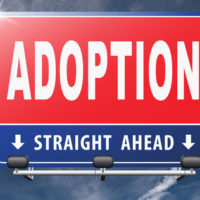The Adoption Tax Credit For 2016

Established in 1997, the adoption tax credit is a tax deduction that has helped thousand of families afford the costs of adoption. The Internal Revenue Service recently announced that the maximum adoption tax credit for 2016 will be $13,460.00. Unlike the adoption tax credit in some previous year, the adoption tax credit for 2016 will not be refundable.
The Amount Of Tax Credit
The amount of the adoption tax credit is influenced by the expenses incurred and the amount of taxes owed by parents who adopt a child. This credit includes “qualified expenses” for adopting a child. These “qualified adoption expenses” include reasonable and necessary adoption fees, court costs, lawyer fees, traveling expenses including meal and lodging costs, and other expenses that are directly related to adoption. Adoption costs that exceed $13,460.00 will not be included in the amount of a tax credit. Expenses that do not qualify include costs for which an employer reimburses an individual through an employee benefit plan.
The Role Of The Income Cap
A tax cap places an upper bound on taxes. The Federal Adoption Tax Credit for 2016 utilizes a specific tax credit. Adopting parent who are determined to earn no greater than $201,920.00 for the year are entitled to take the full tax credit. Adopting parents who earn between $201,920.00 and $241,920.00 in income for the year of 2016 are permitted to use a reduced tax credit, while no tax credit is available for couples earning more than $241,920.00. There are some important limitations, however, that individuals must understand regarding credit limitations for adoption. Step parents are unable to claim the credit because the credit is intended for international adoptions, domestic private adoptions, and public foster care adoptions. Individuals should also understand that expenses incurred by a domestic partner who lives in a state that allows a same-sex second parent to adopt a partner’s child are considered adoption expenses and as such are eligible for the adoption tax credit.
How To Claim An Adoption Tax Credit
Individuals must understand exactly how to make an adoption tax credit claim. Adoptive parents are permitted to claim the adoption tax credit either the year after the expenses are incurred if the adoption is not immediately finalized; or, if the adoption is finalized the same year that expenses are incurred, an individual may claim the adoption tax credit in that year. The credit, however, is not dependent upon whether an adoption attempt was successful. To claim an adoption tax credit, individuals must complete a Form 8839, which is called a “Qualified Adoption Expenses” and attach this form to a Form 1040 or Form 1040A. Individuals must also be prepared to provide documentation to the Internal Revenue Service showing that the individual’s expenses are “qualified adoption expenses.” To make sure that individuals have adequate record of insurance, individuals should keep all of their receipts, invoices, and financial documents relating to the adoption so that this information can be submitted to the Internal Revenue Service if necessary.
Contact A Knowledgeable Family Law Lawyer
If you have questions about the adoption tax credit, it is a wise idea to contact an experienced lawyer at Lindamood & Robinson, P.C. who knows how to assist couples who have undergone the adoption process with receiving clients with the best potential tax credit. Reach out to our Houston office today for help.
Resource:
irs.gov/taxtopics/tc607.html


